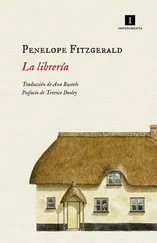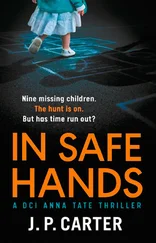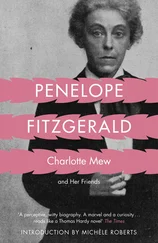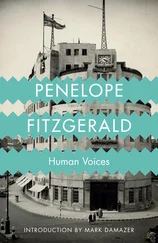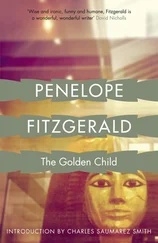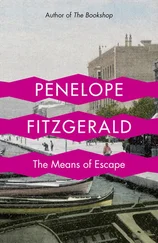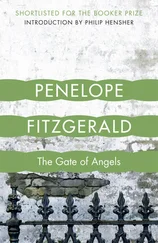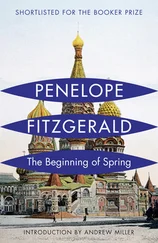The Knox Brothers opens with their grandfather, the missionary Thomas French, who travelled and died taking Christianity to the Afghans and the North West Frontier. Penelope Fitzgerald comments:
Today he would certainly be asked: why not leave these people to their own beliefs? Why press on them something they did not ask for and do not want? To this his reply would be: ‘The viewing of the unseen world instead of the visible things of time – this cannot be a shallow matter; it must be deep or not at all – no halves in such a business.’
The four brothers, in very different ways, inherited this absolute vision. Ronald Knox became a Catholic and distressed his father, an Anglican bishop. Wilfred made unworldly, precise vows of poverty and celibacy and joined the (Anglican) Oratory of the Good Shepherd. Penelope Fitzgerald comments sharply on people who saw him as a delightful eccentric, unconcerned like the birds of the air:
This idea was particularly irritating. Wilfred was the young man who had chosen his ties in the Burlington Arcade, and he loved good wine, good tea and the best tobacco. But renunciation must never be seen in terms of loss.
Dillwyn, a mathematician who helped break the codes of the Enigma machine, was as resolute an unbeliever as those two brothers were believers. Penelope respects that. She describes him in 1916, recruiting Ronnie – ‘an unlikely figure in clerical garb’ – to Naval Intelligence:
To Dilly, all the long-drawn out [family] suffering over his youngest brother was a matter of unrealities; we pray, no one answers, the Churches dispute to the death over how to go on speaking to someone who is not there.
It is in Dillwyn’s logical and startling company that ‘his niece, confined for what seemed an eternity to a boarding school at nearby High Wycombe’, makes a rare appearance. He brings her back late, and confronts the outraged housemistress, who said ‘Rules are made to be kept’, with the answer: ‘But they are defined only by being broken.’
It has rightly been said that Penelope wrote wonderfully about children. Terence Dooley makes the caveat that she liked children, not when they were babies or infants, but ‘when they had reached the age of reason’. (’Ronnie’s niece’ makes another appearance, rebuked by Evelyn Waugh for wanting to leave Ronnie’s sixtieth birthday party early ‘to look after her baby’. Waugh ‘snapped "Children! Nonsense! Nothing so easily replaceable."’)
She tells us, of the Knox family, when their mother was sickening: ‘There was an atmosphere, so frightening to children, of things not being quite right, and of discussions behind closed doors.’ She says of her father that ‘the blow of this death was one from which, in a very long life, he never quite recovered. It gave him, at twelve years old, a spartan endurance and a determination not to risk himself too easily to life’s blows, which might, at times, have been mistaken for coldness.’
The children in whom Penelope, as a writer, is most interested are indeed – like the Knoxes – like Penelope herself: beings who combine clarity of thought with a sense of the existence of the unseen world. They are also perfectionists. The boy actor, in At Freddie’s, practising a jump from a wall again and again may well have died in the search for perfection. Both Hardenberg and his young brother have the same absolutism. They inconvenience others, damage them even, yet are to be loved and understood and respected. There is something of the same quality in the midget child in Innocence, and by extension in the young Italians in that book. The quality is indeed a form of innocence. There is a comic version of it in the boy, observed by Penelope’s father at Rugby, who stopped the school clock with an accurately aimed squash ball. It turned out that the boy had been practising the shot for two years. The headmaster called this ‘un-English’.
Eddie did not agree. The patient, self-contained, self-imposed pursuit of an entirely personal solution seemed to him most characteristically English.
It is in this sense – for she resembled her family, and knew it, as well as observing it clearly – that Penelope Fitzgerald is an English novelist. She is not a novelist of manners, though she observes them wickedly, nor of class, though she understands it. She writes very English versions of European metaphysical fables, embodying them in idiosyncratic reality.
I spoke to her, possibly for the last time, at one of the award parties for the Cohen Prize. She looked distracted, as she usually did at parties. I asked her if she was writing, and she looked at me searchingly and asked: ‘How do you think of a novel?’
I don’t know how she thought of the ones she wrote. I don’t know what they can have been like in the planning – they seem as though they had to be as they are. She made it appear a question of extreme difficulty. I do not think reading her letters will really answer it either – though they illuminate other things. Instead, their reader will enjoy being in the company of Penelope’s courtesy and intelligence. And then will ask for him or herself: ‘How do you think of a novel?’ And understand the difficulty of the question.
INTRODUCTION
I: Family and Friends
Penelope Fitzgerald was shy and awkward with anyone who was not an old friend or a family member. If writers are often monsters of egoism, she was not. Confident only in her fearsome sense of artistic rightness and in her abundant knowledge, she had no great conceit of herself; she feared herself ineffective socially, a voice unlikely to be heard. In person, one felt her reserves of sharp kindness, intelligence and sympathy. She was stern. She willed one to come up to the mark. She could be devastatingly funny.
In letters she could say all that she wanted to say, and couldn’t quite face to face. She did so in a way that was truthful, witty and persuasive, but above all focused on the person she was writing to. She intended to be entertaining, to offer consolation or to celebrate. She is vividly alive in these letters, and, because she has their recipients so clearly in mind, their characters become clear to us too. Though she writes eloquently, she is unselfconscious and unguarded – it is quite evident that she wrote without thought of publication. It was part of her modesty that Penelope left no instructions about what should or shouldn’t be published after her death. I think these letters will give her readers, without the frisson of gossip and malice, a rounded picture of what she was really like, a sense of the passage of her days, an impression of her career and interests, and the same pleasure they gave to those who first opened them.
Who could have predicted a time when the epistolary art would cease to be a part of ordinary communication, and would pass into history? Every morning when Penelope first sat down at her writing-table she attended to her correspondence. What is collected here must be a small fraction of what she in fact wrote and sent.
Her fame came so late in life that there was no reason for anyone to keep her letters, apart from affection, and she lost her personal records, including her husband Desmond’s and her (copiously illustrated) letters, written when he was serving overseas, when the family’s houseboat, Grace, sank for the second and last time, in 1963, which also made it difficult to trace Hampstead and Suffolk friends from the earlier, more prosperous periods of her married life. There is therefore a hole in the middle of this collection which engulfs her work as a programmes assistant at the BBC, the early years of her marriage, her editorship of World Review, her child-bearing and -rearing years, and her financial disasters. The years when, as Cervantes said to explain his own long silence, she was living her life: the years before she came to write.
Читать дальше
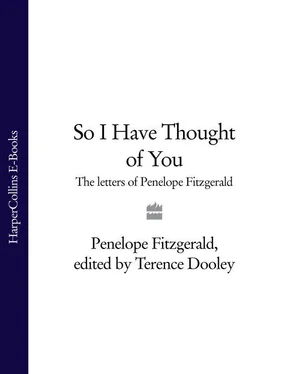
![Ally Carter - [Gallagher Girls 01] I'd Tell You I Love You But Then I'd Have to Kill You](/books/262179/ally-carter-gallagher-girls-01-i-d-tell-you-i-lo-thumb.webp)
